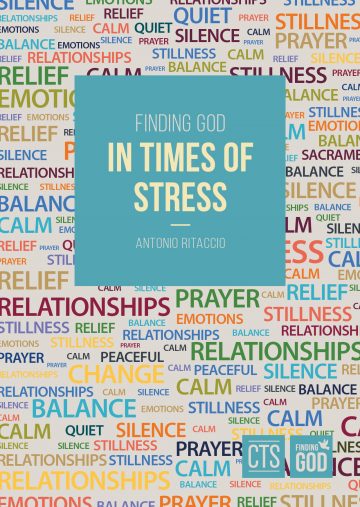The first and most basic message of the Christian faith is the pronouncement that we are accepted and loved unconditionally by God. In the Bible, St John reminds us of two of the most foundational doctrines of the whole Christian Gospel. First, that “God is Love” (1 Jn 4:8) – not that God is like love or does love but rather He is love itself. God’s essence and nature is love at the core. The second follows on from this, that “God loved us first” (1 Jn 4:19). God’s love precedes anything we can ever say or do by way of response. Christians believe that God loving us does not depend on us earning that love by how we behave. This is the love of God revealed in Jesus Christ and the gift that is continually offered to all in every place and time.
The gift of God’s love
This message has become so familiar to us that its power to change us no longer has the effect it should. It has become so domesticated that we fail to grasp its full potential. Yet it remains a revolutionary message that changes lives every day. To the youth of the Church, Pope Francis spoke these words:
“The very first truth I would tell each of you is this: ‘God loves you’. It makes no difference whether you have already heard it or not. I want to remind you of it. God loves you. Never doubt this, whatever may happen to you in life. At every moment, you are infinitely loved”.
This declaration that we are loved by another is a positive, hopeful and transformative truth that addresses our human existence at every level. To be loved and love in return is essential for our emotional lives, for our emotions draw us into loving relationships which give us life and joy. Believing we are loved implies that no matter how we are feeling, how well or sick we become, God’s love is ever available and accessible in a deeply personal and consistent way. Here is an inexhaustible source of self-esteem and positive energy that cannot be replicated by our own efforts. It is sheer gift.
The assurance of God’s unconditional love is given because of who he has declared us to be – beloved children of God our Father who possess the goodness and beauty of God himself. As we are His children, His Spirit of love has been poured into our hearts making us cry out “Abba Father!” (Rm 5:5; Ga 4:6) Yes, we are broken, limited and in need of healing and mercy, yet our faith tells us that, no matter how chaotic our lives seem or what our past has been, the love of Christ never stops pursuing us, offering itself to us again and again. God’s love for us is not static but searching and dynamic; it is the love of the good shepherd who goes in search of the lost sheep (cf. Lk 15:4ff) or the woman in search of the lost coin (Lk 15:8-10). In the beautiful words of St Augustine (354-430),
“You have called to me, and have cried out and have shattered my deafness…You have sent forth fragrance, I have drawn in my breath and I pant after you. I have tasted you and I hunger and thirst after you. You have touched me and I have burned for your peace”.
Therefore, as we endure any difficulty, mental or physical, our faith assures us that “nothing can separate us from the love of God, made visible in Christ Jesus our Lord” (Rm 8:39).
Accepting God’s love for us
The second half of this foundational theme of God’s unconditional love is whether and how it is accepted by us as gift. The experience of love consists in its being offered and received. I might be told of God’s love towards me but do I really believe it and accept it? We all know that faith in God’s goodness is severely tested at times of trial and crisis. In periods of great suffering we might be tempted to ask, “If God loves me then where is He now?” Or we might resort to the language of merit – on one hand to ask ourselves, “What have I done to deserve this?” or on the other hand to say, “I deserve this because I’m a bad person”. What makes a gracious acceptance of God’s love easier is to realise that God’s love for us does not depend on how good we are. He loves us not because we are good but so that we might be good as He is good.
His love is also constant whether we are happy or sad. He does not love us less in the darkness. When we suffer we are not being punished for our past or victimised for what we haven’t done. We know this from the life of Jesus himself and his own suffering though he was innocent of sin. As disciples who participate in his Passion, Jesus leads us on his path and invites us to follow him. On this path and united to his Spirit, we partake in his suffering and the new life he won for us. What we suffer is a participation in the great mystery of his cross that leads to a share in his resurrection. It is a mystery that is greater than any of us for it is part of the transformation not just of us but of the whole world. That is why St Paul understood his trials beyond himself as a completion of “what is lacking in Christ’s afflictions for the sake of his body, that is, the Church” (Col 1:24). Therefore, for the one suffering from physical or mental illness, the experience of darkness is an invitation to know the Lord Jesus by “sharing in his sufferings” (Ph 3:11) and with him to offer our pain for the love for all humanity. Here is the mystery of love that is inseparably woven with suffering but that leads to hope and the promise of new life.
 This blog is extracted from Finding God: Faith and Mental Health. Drawing on both the ancient teachings of the Church and modern research, Fr Billy Swan discusses ten ways Christian faith can support good mental health and wellbeing.
This blog is extracted from Finding God: Faith and Mental Health. Drawing on both the ancient teachings of the Church and modern research, Fr Billy Swan discusses ten ways Christian faith can support good mental health and wellbeing.
Click here to order Finding God: Faith and Mental Health now.





